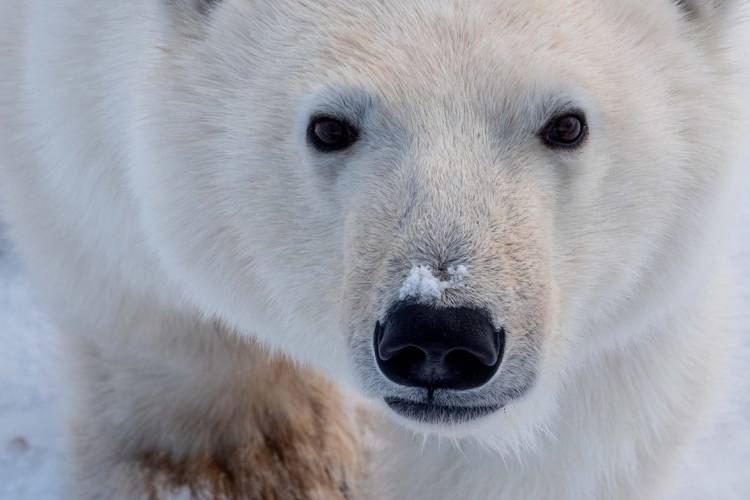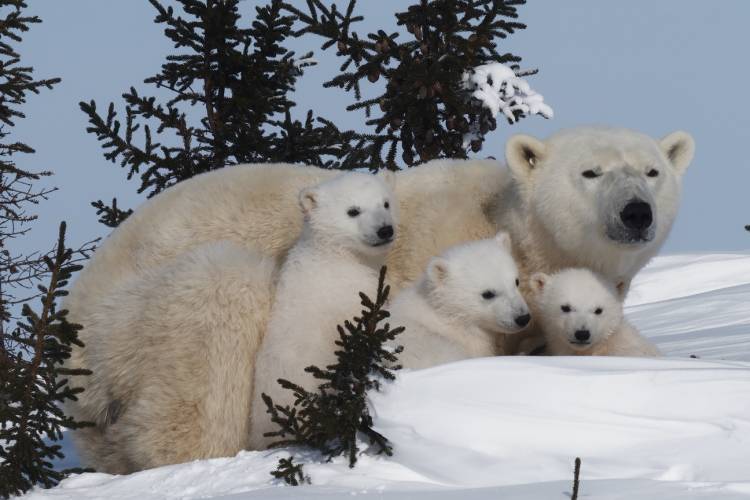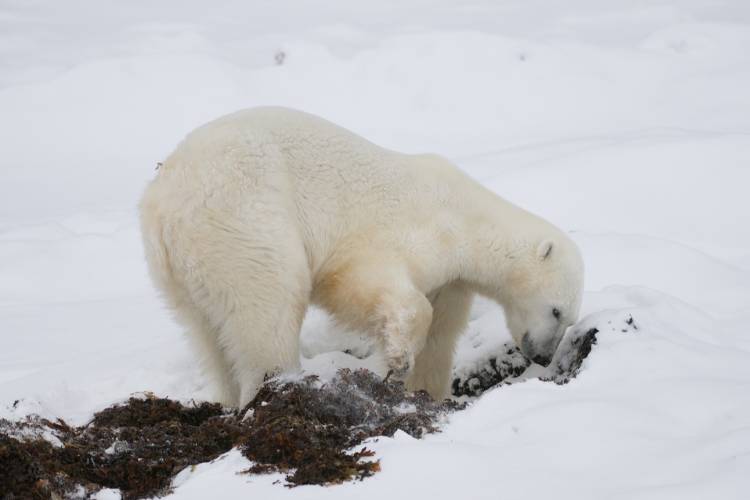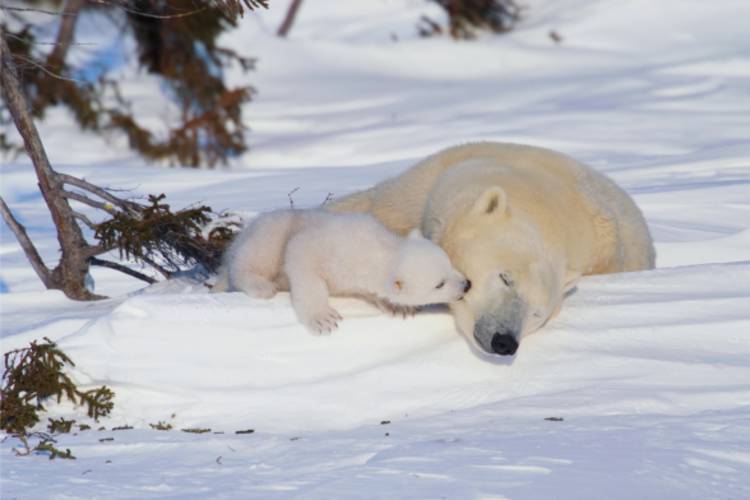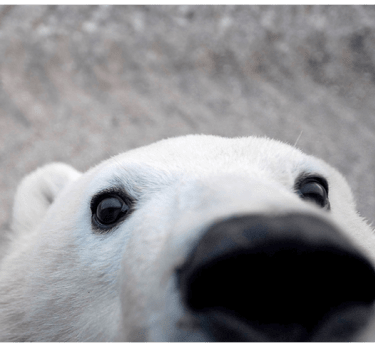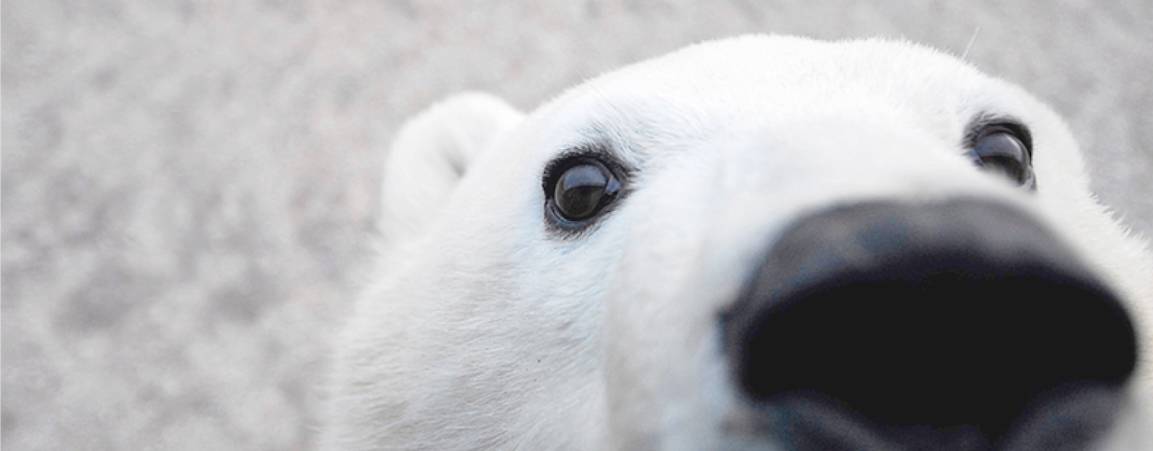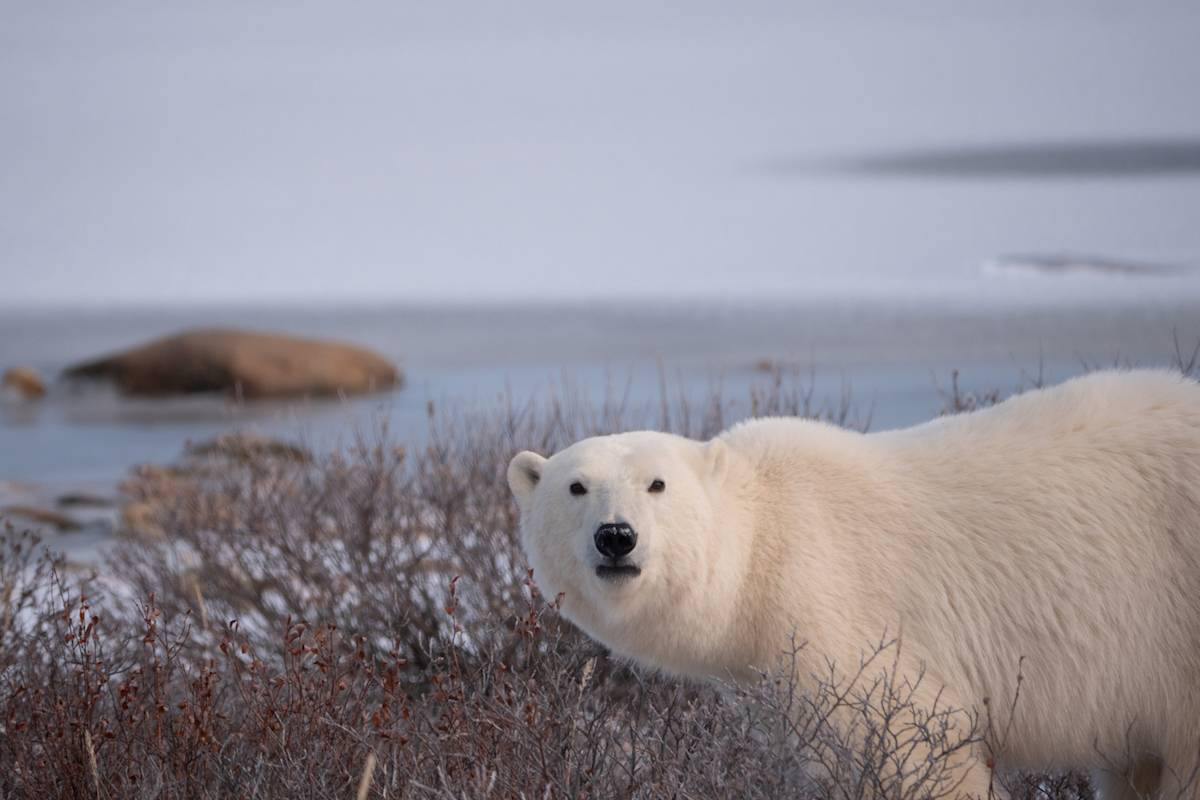
Photo: Kieran McIver / Polar Bears International
Why Polar Bears Can't Learn to Hunt Like Grizzlies
MINS
22 Jul 2021
“Polar bears and grizzly bears are closely related but, ecologically, they are far apart in how they make a living, and have evolved for different habitats.”
Fostering young cubs has been used on other species, but usually the young are raised in captivity and then placed with wild parents of the same species. Fostering to a different species has been tried but there are often problems with the behavior of the young. How such a method would work on polar bears is difficult to say.
It is likely that a polar bear fostered into a grizzly bear family would behave much like a grizzly bear would. The recent discovery of a polar bear-grizzly bear hybrid in the wild shows that the offspring behaved like the mother (a polar bear) and lived out on the sea ice hunting seals.
It is generally assumed that many behavioral traits in bears are derived from the prolonged period of the mother-offspring bond. However, there could be problems. Polar bears grow to a much larger body size than northern grizzly bears, and it is not clear how a polar bear cub would grow under such a calorie-limited diet. Typical of other species, there may also be difficulties in mate identification: would a polar bear raised by a grizzly look for a polar bear or a grizzly bear to mate with?
Other issues come to mind. The habitat on the mainland for a terrestrial bear is already filled by the grizzly bear. Nature rarely allows two species to fill the same ecological niche. Further, it is unlikely that the High Arctic islands would provide much sustenance for a polar bear trying to live like a grizzly bear.
Further still, polar bears have evolved adaptations for a predatory lifestyle. The claws of a polar bear would be unsuitable for digging out roots or ground squirrels.
There are also problems associated with activities like overwinter denning. All age and sex classes of grizzly bears den overwinter. However, only pregnant female polar bears den in winter to raise young. Terrestrial-living polar bears would do poorly over winter.
Polar bears are formidable predators but grizzly bears are much more opportunist predators. I do not think polar bears raised with grizzlies would find much success in hunting caribou. Caribou are pretty adept at avoiding grizzlies. Changing 400,000 years of evolution—in the span of 100 years—is not a trivial task.
Polar bears and grizzly bears are closely related but, ecologically, they are far apart in how they make a living. At the end of all our interventions, would a polar bear raised as a grizzly bear still be a "polar bear"?
In summary, I hope we never have to resort to such efforts to maintain polar bears in the wild. It seems to me that the solutions are before us and the wise use of resources with incentives to reduce energy consumption are obvious options. Technology can help us achieve climate stabilization—but we need politicians willing to view the world 50 or 100 years ahead and not simply over the span of the short election cycles that are failing our planet.
Answered by Dr. Andrew Derocher, Professor of Biological Sciences at the University of Alberta and a scientific advisor to Polar Bears International.



